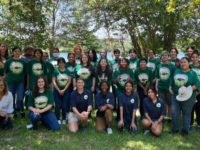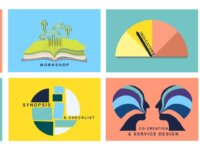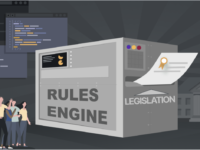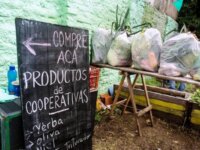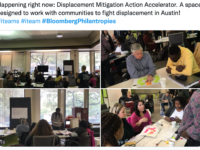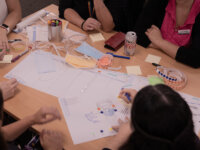Public healthcare in Serbia is transformed through innovative use of mixed reality technology powered by Artificial Intelligence, that increased efficiency and quality of healthcare, minimized risks and efforts, and optimizes procedures. Through remote collaboration, doctors have the same insight into patient’s condition without the need of physical presence, enabling joint real time inputs and medical interventions with experts from anywhere, as well as remote education for medical students.
Innovation Tag: Systems Change
The Austin Civilian Conservation Corps (ACCC) began as a pandemic response program to help residents earn income and access green careers, and has evolved into a leading model for equitable, climate-focused workforce development. The ACCC, a collaboration with 10+ City departments and multiple community partners, has provided over 125 living-wage opportunities with supportive services, training, and career pathways for Austin’s underserved residents, and is actively shaping the green economy.
Case Study
Challenge Tenders – An innovative method of implementing digital solutions to solve urging…
Challenge tenders are a new model designed to solve urging needs of the health system which usually aren't attractive enough for the start-up industry to engage in, such as fall prevention among elders, improvement of geriatric care in long term facilities and others. In order to attract digital based solutions to enter the health system, we initiated an innovative method of intervention which allows quick testing of technologies in health organization with MOH support for fast proven outcomes.
In the VUCA (volatility, uncertainty, complexity and ambiguity) world, the tasks of the government are interconnected and require cross-border collaboration and dialogue within ecosystems. However, one of the key challenges is the lack of knowledge and easy-to-deploy tools. As partners of Work2.0Lab (Työ2.0Lab), we co-created and implemented Ecosystem School 1.0. Its purpose was to develop ecosystem thinking, capabilities and tools to support phenomenon-oriented work within ecosystems.
The Australian Government - Dept of Finance sponsored a Proof of Concept (PoC) that looked at how Rules as Code (RaC) might be provided as a shared utility that can be used to deliver simpler, personalised digital user journeys for citizens. RaC is the process of taking legislation and regulations and turning them into machine-readable code. It provides many benefits to citizens and government, including greater reuse, less duplication, greater transparency and accessibility of rules.
A new Area of Management (AoM) on Innovation has been integrated into the Management Accountability Framework (MAF). This is a tool used to promote management excellence in innovation for Canadians by assessing an organization’s ability to plan, generate and use rigorous evidence to inform decision-making on high-impact innovations. This is innovative in that it provides a clear roadmap to building thriving, innovative organizations and outlines a distinct role for executives in the process.
Bogotá Local was developed to address some of effects of the economic crisis caused by the pandemic to low-income and vulnerable families in Bogota. This is a reactive response in the short term oriented to recovery and that, in the medium and long run, will consolidate as part of the so-called "people's economy" (economía popular). It is an innovation deployed by the Secretariat of the Government and the Bogota Mayor's office to, principally, serve women, young populations and the elderly.
Austin has experienced rapid growth yet many underserved Austinites have found themselves forced to move when they don't want to, or experiencing homelessness. The City didn't have an anti-displacement strategy. We created a first set of anti displacement insights, accelerated community co-created anti displacement strategies, developed an interactive data tool to stimulate driven approaches, and co-created an equity tool to mitigate displacement risk heightened by its own transit investments.
Customer-oriented public services direct the authorities to look at citizens from their own responsibilities without taking into account a citizen’s overall life situation. A human-centric and life event -based operating model supported with the life-event service ecosystem technology enables the authorities to produce value directly in people's life events through the cooperation of other service providers in a timely and proactive manner.
In 2020, the health department in Queensland Australia piloted a novel form of government-university partnership to multiply the department's capacity for frontline clinical innovation. Building on the significant success of our pilot year, this award winning program has evolved into a dynamic ecosystem of clinicians, consumers and academic experts with an enviable track-record of diverse service transformations. This model is now being emulated by many local health services across the State.

